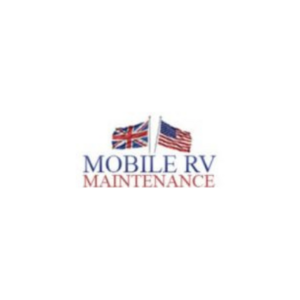Elevating 12 volt relay: A Comprehensive Guide To Door

When most people think about RV electrical systems, they imagine batteries, solar panels, or perhaps the inverter that lets them run a coffee maker. But there’s a small, inexpensive component working quietly behind the scenes that makes sure all your lights, fans, pumps, and other gear run smoothly and safely: the 12 volt relay.
At Mobile RV Maintenance, we see firsthand how a simple relay can make the difference between a carefree holiday and a frustrating breakdown. Here’s what RV owners should know about these essential devices.
What is a 12 Volt Relay?
A 12 volt relay is basically an electrically operated switch. It allows a small electrical current to control a much larger current. This is especially important in RVs, where your control switches or panels can’t handle high amperage loads on their own.
Think of it like this: instead of running a thick, heavy-duty cable all the way to your dashboard switch to power a big device (like a water pump or auxiliary lights), you use a relay. The small dashboard switch simply activates the relay, which then closes a separate circuit carrying the heavy current directly to the device.
Why Are 12 Volt Relays Important in RVs?
Because your RV is packed with 12V appliances — everything from water pumps and fridge fans to slide-out motors and lighting systems — relays are everywhere. They:
- Protect your switches: By carrying the heavy electrical load, they prevent delicate switches or control panels from burning out.
- Allow thin wires for controls: Since the control current is tiny, you can use lighter, simpler wiring to operate big devices.
- Enable automation: Many systems, like fridge fans or battery isolators, automatically turn on and off via relays triggered by sensors or voltage levels.
Without properly working relays, many systems in your RV simply wouldn’t function, or would quickly wear out due to electrical overload.
Common Problems With RV Relays
Relays are small, tough devices — but they don’t last forever. Over time, the internal contacts can become pitted or burnt from repeated switching, or the electromagnetic coil that closes the switch can fail.
Typical signs of a failing relay include:
- Devices that work intermittently: Your water pump may start and stop unpredictably.
- Clicks but no action: You might hear the relay click but your appliance doesn’t run — meaning the contacts inside may be worn.
- No response at all: A completely dead relay can prevent key systems from working.
Because relays often look similar to one another, it’s important to use the correct one for voltage and amperage ratings. At Mobile RV Maintenance, we always double-check specs to avoid mismatches that could damage your gear.
How Often Should You Check Your Relays?
There’s no hard rule, but we recommend testing or visually inspecting relays during your annual RV service. If you’re experiencing electrical gremlins — like flickering lights, unreliable pumps, or slide-outs that won’t always move — relays are among the first things we’ll check.
Testing typically involves checking for click sound operation, using a multimeter to ensure continuity across the switched contacts, and verifying that the relay is getting the proper trigger voltage.
Why Trust Mobile RV Maintenance?
We understand RV electrical systems inside and out. Unlike general auto shops, we know the quirks of RV control boards, battery management systems, and 12V distribution setups. We can quickly diagnose relay problems, replace faulty units with quality parts, and make sure everything is wired safely to protect your RV.
Ready to Hit the Road?
Don’t let a small, overlooked component like a relay ruin your trip. If you suspect an electrical issue or just want a pre-season check-up, Mobile RV Maintenance is here to help. We’ll keep all your 12 volt systems — from fans to fridges — running reliably, so you can relax and focus on the adventure ahead.
What exactly does a 12 volt relay do in my RV?
A 12 volt relay acts like a remote-controlled switch. It allows a small, low-current circuit (like your dashboard switch) to safely control a high-current circuit that powers larger devices — such as water pumps, fridge fans, or exterior lights.
How do I know if a relay is failing?
Common signs include intermittent operation of appliances, hearing a clicking sound without the device turning on, or complete failure where nothing happens at all. You might also notice flickering lights or pumps that run weakly.
Can I replace a 12 volt relay myself?
If you’re comfortable working with RV wiring and understand basic electrical safety, replacing a relay is often straightforward. However, it’s important to use the correct type and amperage. If you’re not sure, it’s best to let professionals like us handle it to prevent wiring mistakes or potential damage.
Do relays wear out often?
Relays are generally reliable and can last many years, but because they’re mechanical switches with moving contacts, they do wear out eventually — especially in systems that cycle frequently, like water pumps or cooling fans.
Why can’t I just run everything through a switch without a relay?
Most dashboard switches are not designed to carry heavy electrical loads. Running large currents directly through them can cause overheating, melted wires, or even fires. Relays protect your switches and wiring by isolating the heavy current.
Can Mobile RV Maintenance test my relays?
Absolutely! We check relay function as part of routine electrical diagnostics. We can quickly identify a bad relay, replace it with the right part, and ensure your RV’s 12V systems are safe and dependable.


